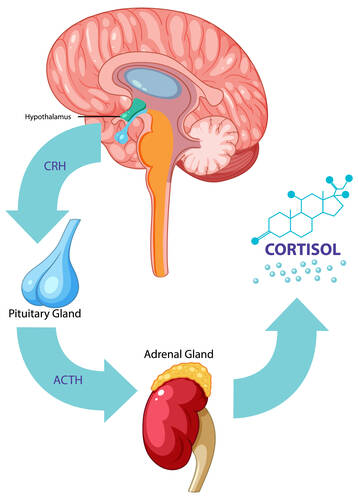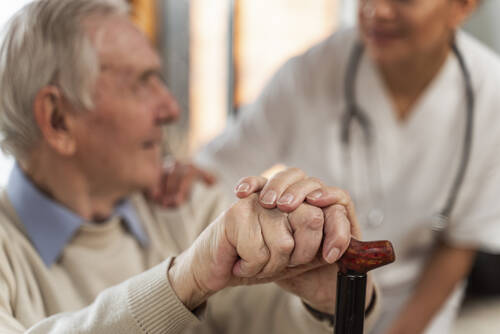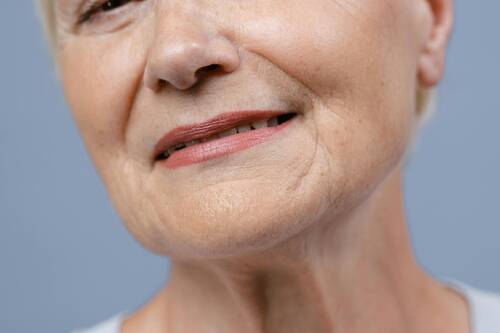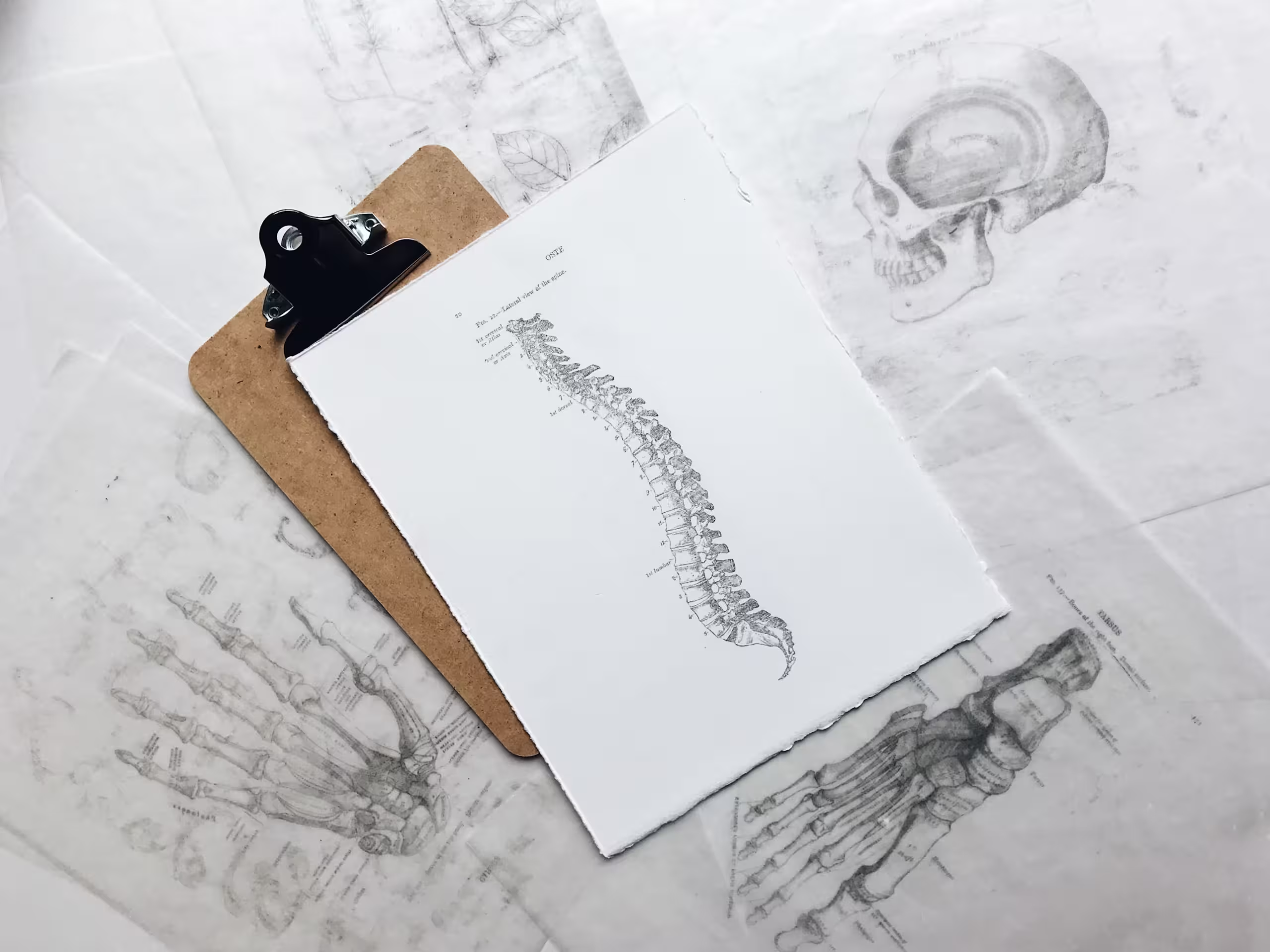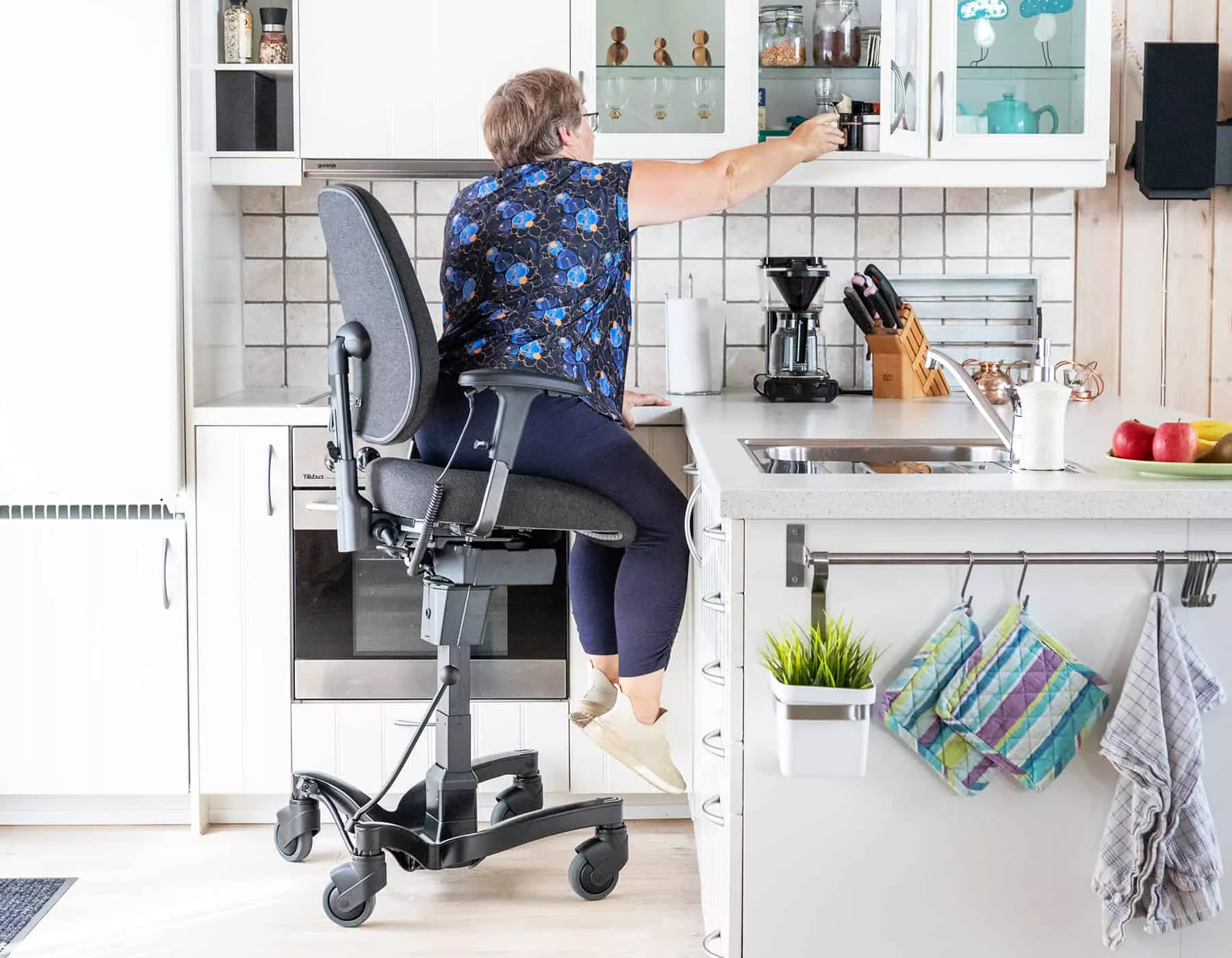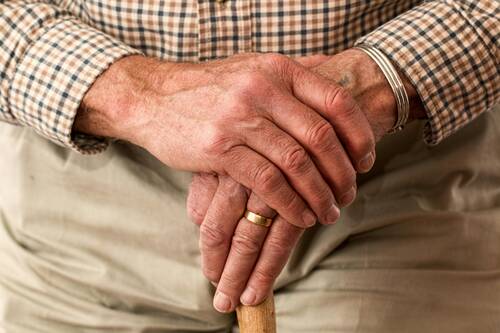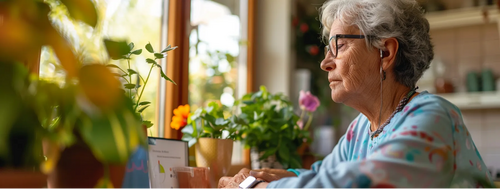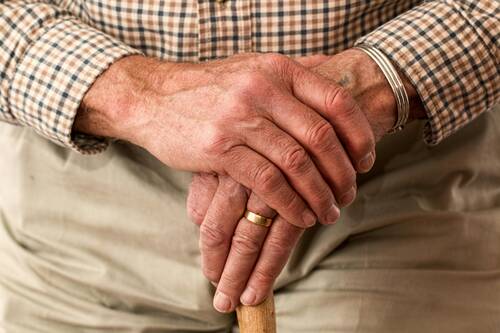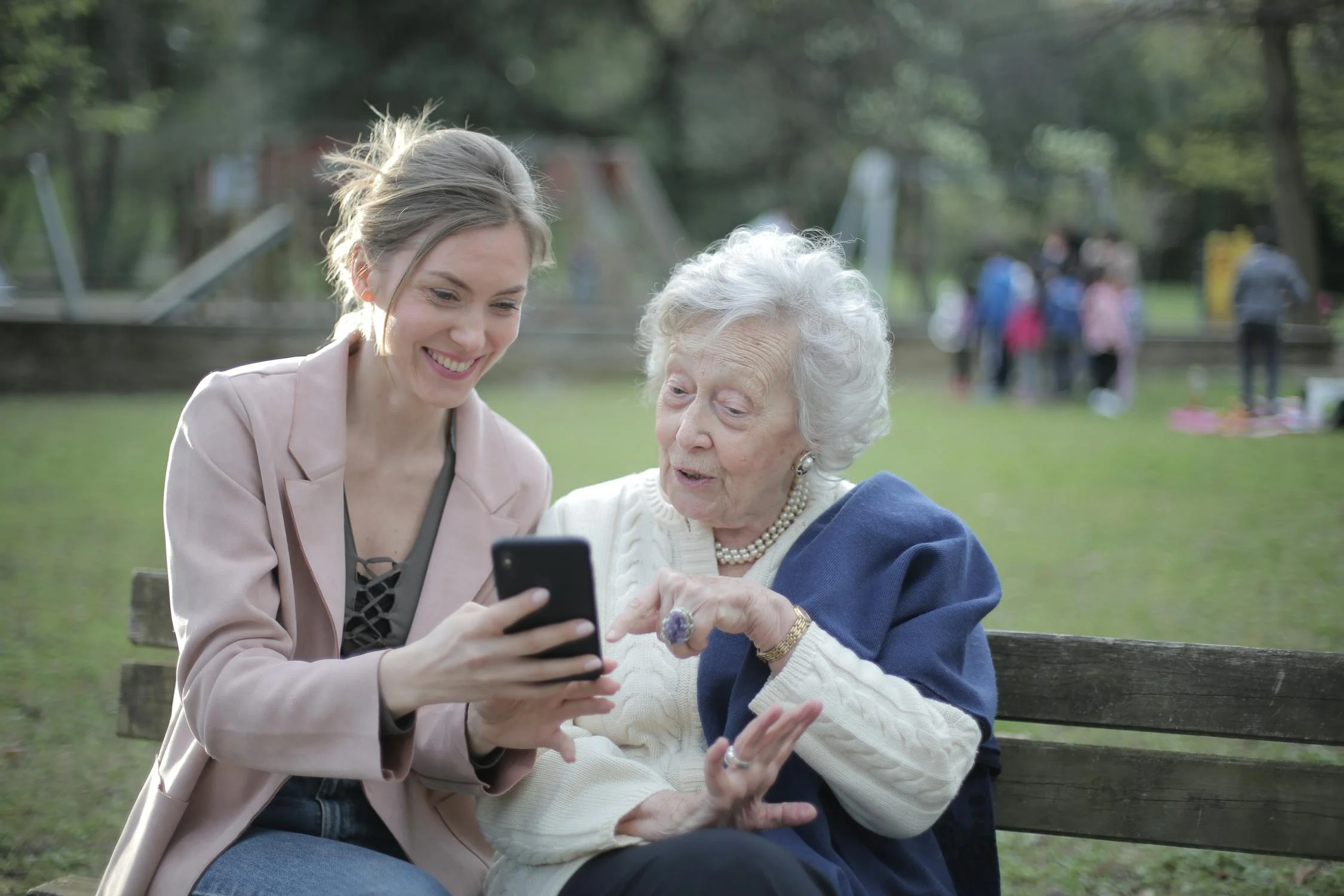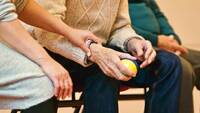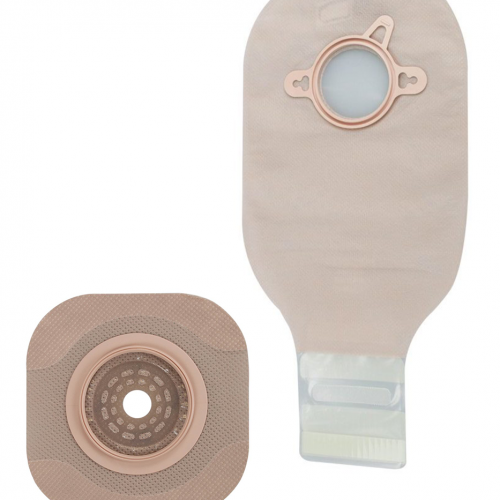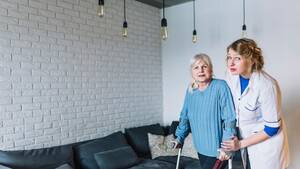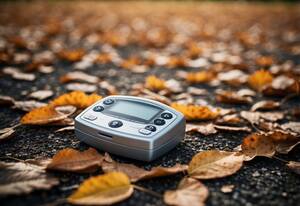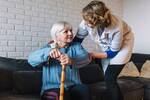The endocrine system is a network of glands that produce and release hormones. These hormones control many vital body functions, including metabolism, growth, and reproduction. As we age, the efficiency of this system declines, leading to various age-related diseases and conditions. Understanding how the endocrine system impacts longevity can help us develop strategies to live longer and healthier lives.
Continuous caregiving can result in physical and emotional exhaustion. Respite care provides a much needed break allowing carers to rest,...
Editor's note: Please consult your health care provider to discuss your personal medical journey.
Most supplements are not FDA tested and may have side effects.
Aging brings numerous physical and mental changes, many of which can be mitigated or managed through regular physical activity.
Exercise is not just about maintaining a healthy weight or looking fit; it plays a crucial role in reducing the risk of age-related health concerns such as heart disease, diabetes, osteoporosis, and cognitive decline.
It also boosts energy levels, strengthens the immune system, and promotes better mental health by reducing stress and enhancing mood.
Whether you're in your 50s, 60s, or beyond, incorporating appropriate exercises into your routine can significantly enhance your quality of life and overall well-being, fostering independence and vitality.
(more…)
Aging, Geriatrics / 22.11.2024
How Do I Find Quality In-Home Care for Seniors Near Me? Here’s 10 Tips
Author: Jemma Pringle
Finding reliable, compassionate in-home care for a loved one is a significant decision that can shape their quality of life. With many options available, it’s essential to understand what makes a caregiving service trustworthy and capable of providing the support your family needs.
From personalized assistance to specialized medical care, the right provider can make a difference. This guide will walk you through key considerations to help you stop Google searching for in-home care for seniors near me.
Determine Your Loved One’s Needs
Before you begin your search, it is helpful to assess your loved one’s specific needs. Consider what daily activities they struggle with, such as bathing, dressing, or managing medications. If your loved one has a chronic illness or specific medical requirements, you may need a caregiver with specialized skills. Creating a list of needs can help narrow your options and ensure you find a provider equipped to handle your loved one’s unique requirements.Look for Licensed and Accredited Providers
Working with licensed, accredited providers is crucial to ensure your loved one receives high-quality care. Local health authorities typically regulate licensed providers and have passed inspections to meet care standards. Many reputable agencies proudly display their licenses and accreditations on their website, so take a moment to confirm this information during your search. (more…)
Aging, Dermatology, Plastic Surgery / 18.11.2024
Taming Wrinkles: 8 Alternatives to Traditional Botox
As the years pass, the quest for smoother, youthful skin becomes all too familiar. While Botox has been the classic go-to for many, not everyone wants to take that route. Whether it’s the needles, the expense, or simply looking for a gentler option, exploring alternative ways to tackle fine lines is more popular than ever.
Before you decide to start your Botox at home, consider some alternative options that don’t involve injections. From creams and face patches to unique therapies like acupuncture, there are plenty of effective ways to smooth out wrinkles without needles. Explore these top non-Botox wrinkle-taming options to find what works best for you.
1. Neuropeptide Creams
Neuropeptides are small proteins that help firm and smooth skin by boosting collagen production. You’ll often find them in creams and serums marketed as anti-aging treatments. How It Works: Neuropeptides are applied topically and work by reinforcing skin elasticity. Pros: Easily accessible with no needles and improves skin texture gradually. Cons: Results may vary. It also may take time to notice the effects. While they may not freeze muscles like Botox, neuropeptide creams can still minimize the look of fine lines over time. They’re gentle enough for daily use, making them an excellent low-maintenance option to add to your skincare routine. (more…)
Aging, Supplements / 18.11.2024
The Anti-Aging Molecule Debuted on the Joe Rogan Podcast: NMN and the Science Behind It
Editor’s note: NADH is not the same as niacin, niacinamide, or nicotinamide riboside.
Please discuss the use of NAD⁺ with your health care provider before use and if you are taking long term. NAD⁺ supplements are not FDA tested and may vary between formulations. There are no studies of NAD⁺ in children, pregnancy, breast feeding or those planning to become pregnant. The efficacy and long term safety of NAD⁺ has not been definitively determined. Products discussed have not been independently verified.
In the ever-growing world of longevity research, one name that has gained significant attention is Nicotine Mononucleotide (NMN). This compound, once considered just a minor player in biochemistry, has become the focal point of discussions about aging, healthspan, and the potential to reverse age-related cellular decline.
Dr. David Sinclair, a leading scientist in the field of aging and professor at Harvard Medical School, debuted NMN to a wider audience during his appearance on the Joe Rogan Experience podcast. Since then, interest in NMN has skyrocketed, with many wondering: Can this molecule really slow down or even reverse the aging process?
In this article, we’ll delve into the science behind NMN, explore its potential as an anti-aging molecule, and discuss how you can incorporate it into your daily routine.
What is NMN?
Nicotinamide Mononucleotide (NMN) is a naturally occurring compound found in all living cells. It is a derivative of niacin (Vitamin B3) and plays a crucial role in the production of Nicotinamide Adenine Dinucleotide (NAD+), a coenzyme that is essential for life. NAD+ is involved in numerous fundamental cellular processes, including energy production, DNA repair, and maintenance of cellular health. However, as we age, our NAD+ levels decline, leading to a range of cellular dysfunctions that contribute to aging and age-related diseases. Dr. David Sinclair, in his extensive research on aging, discovered that boosting NAD+ levels could have profound implications for slowing down the aging process. Since NMN is a direct precursor to NAD+, it is believed that supplementing with NMN could effectively restore NAD+ levels and support the body’s natural repair mechanisms. (more…)
Aging is a journey—one that comes with many ups, a few downs, and a whole lot of changes in how the body feels and functions.
Waking up with stiffness or dealing with aches after a simple walk also becomes common. And while that might feel like an inevitable part of aging, it doesn’t necessarily have to be. Just because you’re aging doesn’t mean you should settle for constant discomfort.
Medicines and supplements are often the go-to for seniors dealing with age-related issues. But these just mask the symptoms rather than addressing the root cause.
Chiropractic care, however, is a powerful, natural way to boost your well-being as you age. It is not just about back cracking and neck adjustments; it’s about keeping your whole body moving freely, reducing pain, and making day-to-day activities easier.
Here are some of the top ways chiropractic care can make a difference:
#1 Improves Joint Function
Nearly 60% of people over 50 have some form of arthritis. The University of Michigan National Poll on Healthy Aging has revealed this. Arthritis, an often inevitable part of aging, can make even the simplest movements uncomfortable. Popping pills might provide relief, but only for a short period of time. Chiropractors can be of big help in keeping joints moving smoothly. They adjust the spine and other joints to relieve tension and restore natural alignment. These adjustments increase blood flow and improve joint mobility, which makes movement smoother and less painful. Moreover, many chiropractors go beyond adjustments; they recommend specific stretches and exercises that support healthy joints. (more…)
Lift chairs are an essential addition for seniors who need a bit of extra support in their daily lives. These specially designed chairs gently lift and lower, making it easier to sit down or stand up without straining muscles or joints.
For those dealing with arthritis, back pain, or balance issues, a lift chair can be much more than just a comfortable seat—it’s a practical aid that supports health and independence. Here’s a closer look at how lift chairs work, the health benefits they offer, and tips for choosing the right one.
How Lift Chairs Make Life Easier
Lift chairs, often called "chairs that lift for seniors," are recliners equipped with a motorized function that raises and tilts the seat forward. With the push of a button, the chair moves smoothly to help users stand up or sit down with minimal effort. This technology is especially helpful for anyone with limited mobility, allowing them to move safely and independently. (more…)
Aging, Dermatology, Plastic Surgery / 29.10.2024
Exploring Modern Solutions for Aging Skin
Modern cosmetic treatments offer non-invasive options that can provide faster results for those looking to address deeper wrinkles, sagging skin,...
Nursing homes of a high standard can have great benefits for residents. When selecting a nursing home or rehabilitation center, families often rely on facility ratings to evaluate the quality of care provided. Understanding the ratings associated with nursing homes can offer insights into the quality of care residents receive, helping families make well-informed decisions.
Key Aspects of Ratings for Nursing Homes
Nursing home ratings typically cover several essential areas of care, including staffing, safety, and resident satisfaction. The high Casa de Oro Center ratings reflect its commitment to providing a safe, supportive, and nurturing environment for residents. Families evaluating this facility should consider the following aspects:- Staffing and Responsiveness: Adequate staffing is crucial for delivering timely and effective care. High ratings in this area indicate that the nursing home maintains sufficient staff-to-resident ratios, ensuring residents receive the attention and assistance they need promptly.
- Safety and Hygiene Protocols: High safety ratings signify the facility’s adherence to strict hygiene protocols, which are essential in preventing the spread of infections and protecting residents’ health.
- Resident Satisfaction: Feedback from residents and their families plays a significant role in overall ratings. High satisfaction scores suggest that residents feel comfortable, valued, and well-supported, contributing to their emotional well-being and overall quality of life.
Aging, Nursing, Nursing Homes / 16.10.2024
Hiring an Elder Care Nurse
Seniors typically need greater help as they age; the difference is primarily in having the correct person at their side. Selecting the appropriate aged care nurse can help guarantee comfort, safety, and good quality of life whether you are thinking about live-in care for seniors. These useful pointers should assist in directing your decision-making process for the best live in care for seniors.
- Experience
Aging, Sleep Disorders / 14.10.2024
Relaxation Techniques for Better Sleep with a Quilted Blanket: Combating Anxiety in Seniors
 Photo by: RDNE Stock project
Photo by: RDNE Stock project
As people age, maintaining independence becomes one of the most important goals for seniors and their families. The ability to live comfortably in their own homes while receiving the necessary support is a crucial aspect of aging with dignity. Personal care assistants (PCAs) play a vital role in helping elderly individuals maintain their independence, ensuring they receive the right balance of assistance and freedom. In this article, we will explore why personal care assistants are so important for elderly independence, how they contribute to a better quality of life, and why more families are turning to them for support.
1. The Balance of Support and Freedom
One of the greatest challenges that seniors face as they age is finding the right balance between needing help and maintaining their independence. Many elderly individuals can manage their daily activities but require some assistance with specific tasks. This is where personal care assistants come in. They provide help with daily tasks without taking away a senior’s sense of autonomy. Personal care assistant duties include:- Bathing and grooming
- Dressing
- Medication management
- Light housekeeping
- Meal preparation
- Mobility assistance
Addiction, Aging, Pain Research / 29.09.2024
Why Older Adults are Using Drugs to Excess and How We Can Help Them
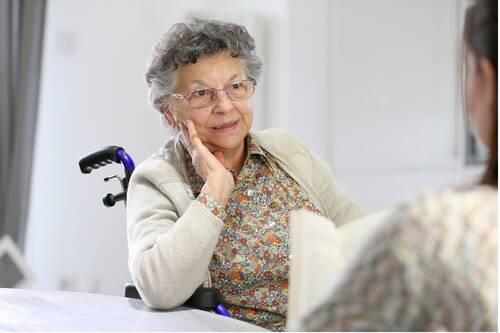 Most news stories tend to focus on how drugs and the opioid epidemic are impacting people in their teens and early adulthood. However, I can tell you from personal experience, that there are a lot of older adults who are also abusing drugs alcohol at record rates. This is borne out at our family’s drug treatment program which I founded and run in San Diego, California.
You may be surprised to hear that the rates of opioid overdose in the U.S. have increased the most among people ages 65 and up (from 2021 to 2022) and that older adults have seen the greatest increase in cannabis use in Canada. One thing you also may not realize is that older adults have the highest recovery rates of all age groups.
(more…)
Most news stories tend to focus on how drugs and the opioid epidemic are impacting people in their teens and early adulthood. However, I can tell you from personal experience, that there are a lot of older adults who are also abusing drugs alcohol at record rates. This is borne out at our family’s drug treatment program which I founded and run in San Diego, California.
You may be surprised to hear that the rates of opioid overdose in the U.S. have increased the most among people ages 65 and up (from 2021 to 2022) and that older adults have seen the greatest increase in cannabis use in Canada. One thing you also may not realize is that older adults have the highest recovery rates of all age groups.
(more…)
Aging, Nutrition / 20.09.2024
The Science of Aging: Foods That May Boost Your Body’s Natural Defenses
Aging is an inevitable part of life, but the rate and manner in which we age are influenced by several factors, including our diet. As research continues to uncover the relationship between nutrition and longevity, it’s clear that what we eat plays a pivotal role in protecting our body’s natural defenses. By incorporating nutrient-rich foods into your daily routine, you can help mitigate the effects of aging, strengthen your immune system, and improve your overall quality of life.
This article explores some of the most impactful foods to incorporate into your diet to naturally support healthy aging.
Understanding the Aging Process
Aging is a complex biological process that involves the gradual decline of cellular function. As we age, our cells undergo oxidative stress, a condition where free radicals—unstable molecules—cause damage to our DNA, proteins, and lipids. This damage accumulates over time, leading to inflammation, chronic diseases, and a weakened immune system. However, certain foods are rich in antioxidants, which help neutralize free radicals and protect the body’s cells from oxidative damage. Additionally, many foods contain anti-inflammatory properties, essential vitamins, and minerals that support the body’s natural repair mechanisms, helping you stay healthier for longer. (more…)
Aging, Nursing / 14.09.2024
Resources for Caring for an Elderly Family Member
Legal planning is an essential aspect of long-term care for elderly family members. Establishing power of attorney, creating living wills,...
Choosing the right nursing care facility for a loved one is an important decision that requires thorough evaluation and thoughtful planning. Whether for short-term rehabilitation or long-term care, finding a facility that meets both medical needs and emotional well-being is crucial. Here are some key steps to help guide your decision-making process.
Determine Your Loved One’s Care Requirements
Start by identifying the specific needs of your loved one. This includes their current medical conditions, level of mobility, dietary preferences, and any special needs like regular medication or therapeutic support. Having a clear picture of these requirements will help you identify the most suitable care setting. When evaluating potential facilities, you can find detailed information and compare different options for nursing care services with careforfamily.com.au to help guide your decision. (more…)
Aging, Author Interviews, BMJ, Heart Disease, Statins / 11.09.2024
BMJ: Study Finds Lifetime Statin Use Likely to Improve Years Lived in Good Health
MedicalResearch.com Interview with:
Borislava Mihaylova, DPhil
Associate Professor & Senior Health Economist
Nuffield Department of Population Health, University of Oxford,
UK & Professor of Health Economics
Wolfson Institute of Population Health
Queen Mary University of London, UK
MedicalResearch.com: What is the background for this study?
Response: Despite high risks of heart disease and stroke in people over 70 years old and high need for preventive treatment such as statins, fewer older people use statins [compared to middle-aged people]. This, at least in part, is likely due to fewer older people, particularly those without previous heart attacks and strokes, included in the randomized studies of statin treatment. This has led to more limited evidence among them with larger uncertainty. Thus, we set to re-examine the value of statin treatment using the latest evidence and contemporary population data.
(more…)
As we continue to live in a world where technology is advancing day by day, its impact on various aspects of our lives grows ever more significant.
As much as we believe that the elderly are so far untouched, the new age interactive use of technology has not only brought seniors close to use of gadgets, but interestingly they are engaging and entertaining.
By adopting various digital tools and platforms, seniors can maintain their independence, stay connected with loved ones, and manage their physical and mental health more effectively.
This article explores how seniors can use technology to enhance their health and well-being and provides practical tips on incorporating these innovations into their daily lives.
(more…)
One area where technology is making a profound difference is in the health and well-being of seniors, with innovations such as telemedicine Colorado offering accessible healthcare solutions.
Aging, Health Care Workers, Nursing / 20.08.2024
What to Look for in In-Home Care: Ensuring Quality and Compassion
The availability and flexibility of the in-home care agency are also essential factors to consider. . Look for agencies that...
Aging, Geriatrics / 31.07.2024
Maintaining Physical and Mental Health in Old Age
As lifespans extend, the pursuit of a fulfilling and independent later life becomes increasingly important. A holistic approach to aging, encompassing both physical and mental well-being, is essential for thriving in these years. By understanding the challenges and opportunities of older age, individuals can make informed choices to optimize their health and happiness.
The Importance of Physical Health
Physical activity is a cornerstone of healthy aging. Tailored exercise routines that incorporate strength training, balance exercises, and cardiovascular workouts can significantly enhance quality of life. Regular physical activity not only improves mobility and prevents falls but also reduces the risk of chronic diseases such as heart disease, diabetes, and osteoporosis. Nutrition plays a vital role in supporting overall health. A balanced diet rich in fruits, vegetables, whole grains, and lean protein provides essential nutrients for bodily functions. Staying hydrated is equally crucial for maintaining optimal health. Regular medical check-ups and preventive care are indispensable for early detection and management of potential health concerns. (more…)
Aging, Legal-Malpractice, Nursing / 19.07.2024
The Different Types of Abuse Elders Are Subjected to in Nursing Homes
Over 60 million, that's the number of seniors living in the US. But for some, independent living just isn't possible anymore. Moving into nursing homes happens to be the most viable option for these seniors.
These homes are supposed havens with staff dedicated to providing the care and safety their families might not be able to manage at home. Amenities, medical attention, and a sense of community, all wrapped up in one place. But there's a disturbing reality. Even in these places that are designed to be a safety net, elders are at risk of a whole other kind of danger.
Abuse is a common reality for most elders in nursing homes. If you think a loved one might be facing nursing home abuse, then you need to talk to a nursing home abuse attorney. They can fight to get your loved one the justice they deserve.
Now, let's go deeper and see exactly what kind of abuse we're talking about here.
(more…)
For many seniors, the thought of leaving their cherished homes and familiar routines can be daunting. As we age, daily living activities can become more challenging, raising concerns about safety and independence. However, senior home care offers a solution that empowers seniors to continue living safely and comfortably in their own homes.
The Importance of Aging in Place
The concept of aging in place allows seniors to remain in their homes as they age, surrounded by the comfort and familiarity of their environment. This approach offers numerous benefits:- Familiarity and Comfort: Home is a sanctuary, filled with memories and a sense of security. Aging in place allows seniors to maintain their routines and continue living comfortably in a familiar setting.
- Maintaining Independence: Staying at home allows seniors to retain control over their daily lives, making their own decisions and maintaining a sense of autonomy. This independence contributes to a positive sense of self-esteem and well-being.
- Mental and Emotional Well-Being: Familiar surroundings and continued independence can significantly impact mental and emotional health. Seniors who age in place are less likely to experience feelings of isolation or depression that can accompany a move to a new environment.
Aging, Geriatrics, Long Term Care / 10.07.2024
How Home Care Promotes Independence and Quality of Life for Seniors
As our population ages, the importance of care becomes increasingly significant. Preserving independence and ensuring a quality of life are priorities for many elderly individuals, enabling them to enjoy their years with dignity and ease. While traditional care facilities benefit some, they may need more touch than many seniors seek. On the contrary, home care offers a customized solution to meet needs.
This article delves into how home care services can support seniors in maintaining their independence and enhancing their well-being. By exploring aspects of home care, we can gain insight into its effects on seniors and their families. From tailored care plans to the involvement of family members as caregivers, home care presents an approach to support. Additionally, we will examine the role of family caregivers and the financial aspects associated with choosing home care services.
 Home care covers various services provided in the comfort of one's home. These services are typically divided into three categories: care, nonmedical assistance, and companionship. Medical care may involve nursing, physical therapy, or managing medications to ensure that older adults receive attention without frequent trips to the hospital. Nonmedical services include helping with bathing, dressing, and meal preparation, enabling seniors to maintain their routines easily.
These services are focused on offering interaction and emotional support, which help prevent feelings of isolation and loneliness. Home care professionals are trained individuals who deliver these services to ensure that seniors receive care while remaining in their surroundings. Combining medical and companionship services makes home care a versatile and holistic solution for elderly care needs.
(more…)
Home care covers various services provided in the comfort of one's home. These services are typically divided into three categories: care, nonmedical assistance, and companionship. Medical care may involve nursing, physical therapy, or managing medications to ensure that older adults receive attention without frequent trips to the hospital. Nonmedical services include helping with bathing, dressing, and meal preparation, enabling seniors to maintain their routines easily.
These services are focused on offering interaction and emotional support, which help prevent feelings of isolation and loneliness. Home care professionals are trained individuals who deliver these services to ensure that seniors receive care while remaining in their surroundings. Combining medical and companionship services makes home care a versatile and holistic solution for elderly care needs.
(more…)
Understanding Home Care Services
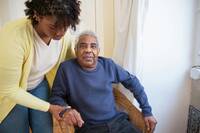 Home care covers various services provided in the comfort of one's home. These services are typically divided into three categories: care, nonmedical assistance, and companionship. Medical care may involve nursing, physical therapy, or managing medications to ensure that older adults receive attention without frequent trips to the hospital. Nonmedical services include helping with bathing, dressing, and meal preparation, enabling seniors to maintain their routines easily.
These services are focused on offering interaction and emotional support, which help prevent feelings of isolation and loneliness. Home care professionals are trained individuals who deliver these services to ensure that seniors receive care while remaining in their surroundings. Combining medical and companionship services makes home care a versatile and holistic solution for elderly care needs.
(more…)
Home care covers various services provided in the comfort of one's home. These services are typically divided into three categories: care, nonmedical assistance, and companionship. Medical care may involve nursing, physical therapy, or managing medications to ensure that older adults receive attention without frequent trips to the hospital. Nonmedical services include helping with bathing, dressing, and meal preparation, enabling seniors to maintain their routines easily.
These services are focused on offering interaction and emotional support, which help prevent feelings of isolation and loneliness. Home care professionals are trained individuals who deliver these services to ensure that seniors receive care while remaining in their surroundings. Combining medical and companionship services makes home care a versatile and holistic solution for elderly care needs.
(more…)
Aging, Gastrointestinal Disease, Geriatrics / 02.07.2024
Senior Health Care: Adapting to Life with an Ostomy
Joining a local ostomy support group can be incredibly helpful by sharing tips and tricks for living with an ostomy....
Aging, Geriatrics, Nursing / 15.06.2024
The Different Forms of Nursing Home Abuse You Should Know About
Nursing homes are supposed to be safe places where elderly people receive the care they need. Unfortunately, this isn't always the case. Nursing home abuse is a serious issue that affects many seniors. According to the National Center on Elder Abuse, about 10% of elderly people experience some form of abuse in nursing homes.
If you suspect abuse, take action quickly and seek help from nursing home abuse attorneys to ensure your loved one receives the care and respect they deserve. No one should have to suffer in silence, and with the right support, you can ensure that your loved one receives the care and respect they deserve.
Read on for a few of the most common nursing home abuses you should know about.
Physical Abuse
Physical abuse is one of the most common forms of nursing home abuse. It involves any act that causes physical harm to a resident. Signs of physical abuse may include unexplained bruises, cuts, broken bones, or other injuries. Examples of Physical Abuse:- Hitting or slapping a resident
- Shoving or pushing
- Restraining a resident with straps or ties
- Not providing necessary medical care
Accidents & Violence, Aging, Technology / 11.06.2024
Why It’s Important to Have Fall Detection for Your Medical Alert Systems: Enhancing Safety and Quick Response
Falls are one of the leading causes of injury among older adults, making the availability of fall detection in medical alert systems essential. Having a medical alert system with fall detection can provide peace of mind, knowing that help will be on the way even if you can't push a button. This feature can be particularly critical in emergencies where immediate assistance can significantly affect outcomes. This article takes you through the reasons why having a fall detection system is an essential add-on to your medical alert system.
Fall detection technology relies on advanced sensors and algorithms to ensure timely assistance when a fall occurs. This technology is built into various wearable devices, offering accuracy and reliability in monitoring movements and detecting falls.
 Fall Detection Technology
Fall Detection Technology
Fall detection technology relies on advanced sensors and algorithms to ensure timely assistance when a fall occurs. This technology is built into various wearable devices, offering accuracy and reliability in monitoring movements and detecting falls.
How Fall Detection Works
Fall detection systems typically use accelerometers and gyroscopes embedded within the device to monitor movement patterns. When a fall is detected, the device triggers an alert, contacting emergency services or a designated caregiver automatically. These systems measure changes in speed and orientation to identify sudden impacts. They provide a vital safety net for individuals who might not be able to manually signal for help following a fall. (more…)
Aging, Author Interviews, Exercise - Fitness, JAMA, USPSTF / 10.06.2024
USPSTF: Health Care Professionals Should Recommend Exercise for Seniors at Risk of Falls
MedicalResearch.com Interview with:
Li Li, M.D., Ph.D., M.P.H
Walter M. Seward Professor
Chair of Family Medicine
Director of population health
University of Virginia School of Medicine
Editor-in-chief of The BMJ Family Medicine
Dr. Li joined the U.S. Preventive Services Task Force in January 2021
MedicalResearch.com: What is the background for this study? What are the main findings of the underlying studies?
Response: Falls are the leading cause of injuries in older adults and can lead to serious disability and even death. To help prevent these incidents, the Task Force looked at the current evidence on ways that primary care clinicians can help prevent falls in adults aged 65 and older who live at home and are more likely to fall.
We concluded that healthcare professionals should recommend exercise interventions for adults aged 65 and older who are at increased risk for falls. This could include gait, balance, and functional training, as well as strength, resistance, and flexibility training. Clinicians can also talk with their older patients who are most likely to fall about whether additional interventions might be helpful to reduce their risk of falling.
(more…)
Aging, Author Interviews, Frailty, JAMA, Orthopedics / 16.05.2024
Rutgers Study Finds Marked Increase in Fractures in Nursing Home Patients Started on Blood Pressure Meds
MedicalResearch.com Interview with:
Chintan V. Dave PharmD, PhD
Assistant Professor of Pharmacy and Epidemiology
Assistant Director
Rutgers Center for Pharmacoepidemiology and Treatment Science
Academic Director
Rutgers Center for Health Outcomes, Policy, and Economics
Rutgers University
New Brunswick, New Jersey
MedicalResearch.com: What is the background for this study?
Response: Our study examined the association between initiation of an antihypertensive medication and its correlation with fracture risk among older nursing home veterans.
(more…)
Aging, Social Issues / 12.05.2024
The Ultimate Guide to In-Home Senior Care
Supporting a family member to age comfortably at home can range from regular check-ins at a parent's place to aiding a partner in daily tasks like bathing and cooking, along with managing medications and giving injections. No matter the extent of your assistance, the following suggestions can enable your loved one to stay at home comfortably for as long as possible.
Create a plan
Balancing immediate needs with future considerations is crucial. Managing day-to-day tasks alongside medical appointments and medication renewals is essential, all while considering potential challenges related to your loved one's health and age. While you can't predict everything, proactive planning allows for better emergency responses. Don't handle it solo; create a support network with family and friends.- Identify responsibilities and reach agreement. Inquire about each team member's willingness to aid in the person's care. Even those at a distance can manage tasks like bill payments, medication orders, and arranging medical appointments. Collaborate on a strategy with them.
- Assess your own capabilities honestly. Determine what tasks you're comfortable handling. If direct caregiving makes you uneasy, such as assisting with bathing, explore if another team member can take over or discuss the possibility of hiring professional help.
- Document the plan comprehensively. Having a written plan ensures clarity among all team members, including the care recipient, thereby minimizing confusion. Keep in mind that the plan may need adjustments over time; update it accordingly.

